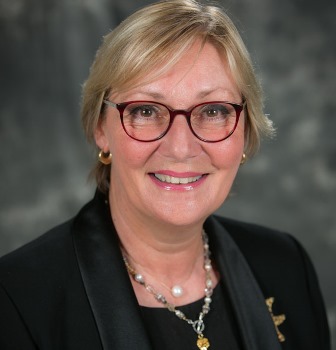 |
by Isabel Bardinet, CEO of the European Society of Cardiology (ESC)
Association management. Associations have a lot in common with football clubs. It is this observation that has led me to believe that as CEOs we can learn from the way they manage their organisations. I also believe that managing your association like a football club can turn the potential threat posed by new technology into an opportunity.
A SWOT analysis of the strengths, weaknesses, opportunities and threats posed by new technology tells us that we need to manage new distance relationships. Is this a threat or an opportunity?
Why and how can we learn from football clubs? First of all they bring together the best players. And then, based on this promise, they attract an audience who either pays to attend or pays to watch the match on television while dreaming of being there in person one day. The potentially damaging distance relationship has not only been managed, it has been made positive and fostered. From this model has emerged a fantastic marketing and brand exercise: the football club concept.
In a similar way, the European Society of Cardiology (ESC) fosters its brand and keeps members involved through our annual ESC Congress and subspecialty congresses throughout the year. We make every effort to use the distance as a springboard to find other ways of offering our members exactly what they have been asking us for, in a number of ways.
ESC 365 gives free online access to ESC Congress webcasts, slides, abstracts and reports all year long. We provide online learning through the ESC eLearning platform and we communicate new science and learning opportunities with a greater degree of online interaction to our members by email, on our website and through social media.
If one compares FC Bayern, one of the most successful football clubs in the world with the ESC, there are some parallels. Simply speaking, the ESC is an organisation which thousands of cardiologists are proud to belong to that organises the world's premier conference on the science, management and prevention of cardiovascular disease. Approximately 30,000 people attend each year.
FC Bayern’s on-pitch success is based on financial sustainability. Members, fans and followers worldwide have built the core of the club and all of its actions are focused on creating and maintaining FC Bayern as a place where they feel “at home”. Bayern has supporters in countries across the globe. China, for example, has 133 million football fans, of whom 56 million are Bayern supporters. (* ref : FC Bayern)
ESC Congress is a success scientifically and financially, the latter enabling us to fund other activities. The ESC was founded by 14 National Societies in 1950. Today the ESC represents more than 90,000 members from constituent bodies (56 National Cardiac Societies from European and Mediterranean countries, 6 Associations, 5 Councils, 15 Working Groups, ESC Fellows and Nurse Fellows) and 39 Affiliated Societies from across the rest of the world.
One of the most valuable assets owned by FC Bayern is its content. Producing and distributing daily content on the club’s media platforms delivers added value for fans and increases its global reach.
The ESC’s scientific content is at the core of everything we do. It is the foundation on which we build all of our activities, with the overall aim of encouraging a healthier lifestyle and reducing the burden of cardiovascular disease in Europe. We share cutting edge research through our family of journals, which includes European Heart Journal, and communicate daily with members and beyond. Our reach on social media has grown dramatically between 2012 and 2014. Facebook fans rocketed by 409% to 97,906, Twitter followers increased by 130% to 23,300 and YouTube views went up by 105% to 393,251. Views on YouTube are driven by ESC Congress video content.
The ESC turns 65 in 2015 and FC Bayern will be 115. We hope that our next half century is even more successful than the first.
Acknowledgements: I would like to recognise and thank FC Bayern Munich for their input.
Isabel Bardinet, CEO of the European Society of Cardiology (ESC)
www.escardio.org